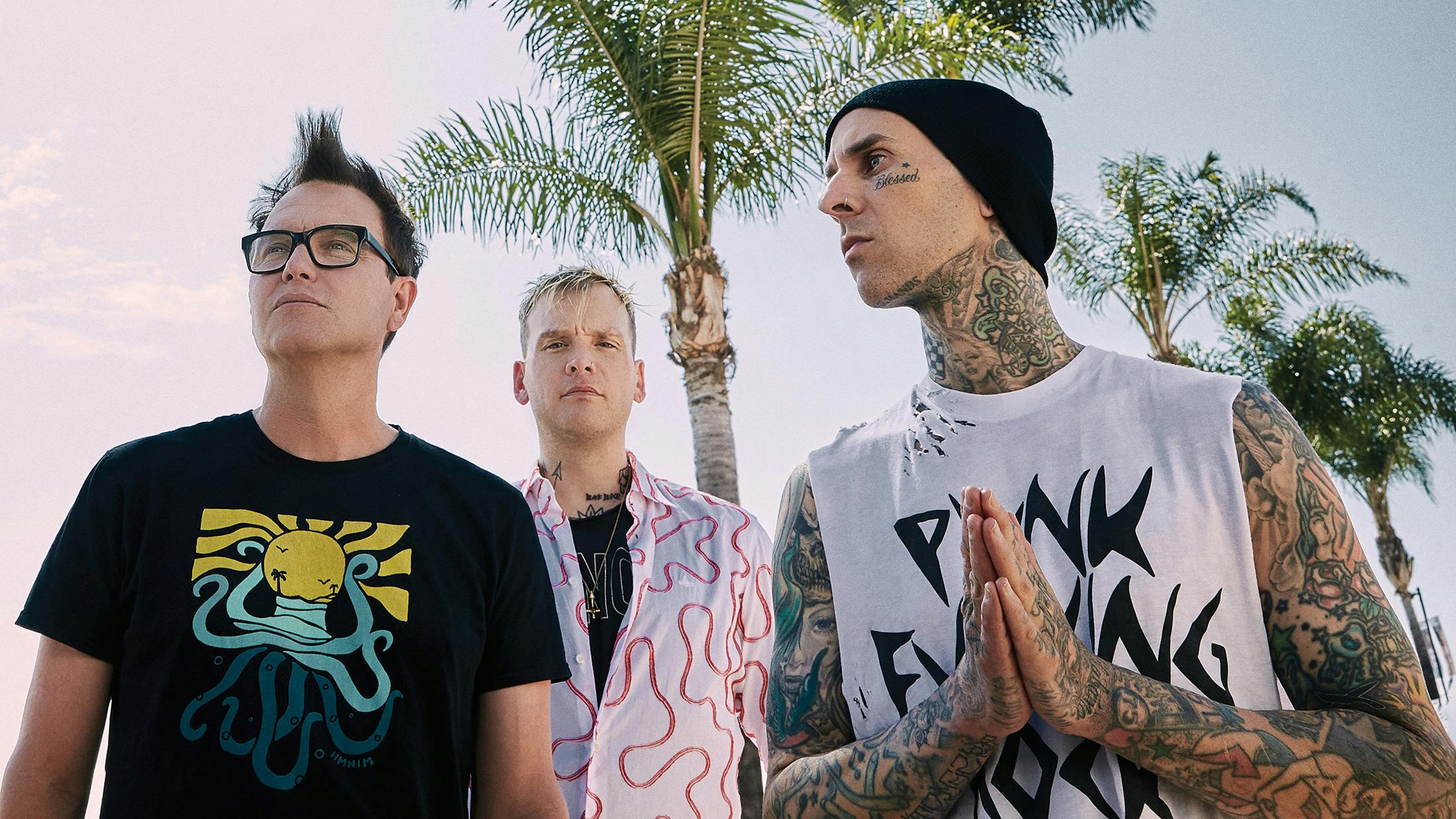But it’s Black Rain that provides the biggest surprise. A skittering, “post-punk, industrial” charge, it is underpinned by a dark-hearted chorus: ‘Tragedy erased my memory / And now all I see is this black rain.’ Compared to the summery hooks of She’s Out Of Her Mind and Bored To Death, this is arguably blink-182’s biggest lane change in years.
“I’m not in a place right now where I want to write really happy, up-tempo songs,” says Mark. “I felt that on this record there’s stuff underneath the surface that was bothering me. I needed to address it. It comes out in the lyrics.”
“Well, I don’t really talk a lot. I’ve gone to therapy sessions and things like that, and it doesn’t really work for me,” Mark reveals. “I don’t like talking one-on-one with someone about weird things. I’d rather talk to 10,000 people at a show about my deepest, darkest fears. I was talking to somebody else the other day and they were asking, ‘What’s it like working with different songwriters?’ And it’s a little strange because you get into the studio with a producer, somebody you haven’t met before, and it’s almost like a blind date. We sit down and they’ll say, ‘Okay, tell me about the most awful thing that’s going on in your mind right now. Tell me about your deepest fears and darkest times and let’s make a song out of it.’ Because that’s what people want to hear. People want to hear the truth. People don’t want to hear some made-up story. People don’t want to hear something half-assed. When music connects it’s when people are being honest with one another. It’s a gigantic outlet for me to discuss the dark things in my life with a whole bunch of people at one time, rather than talking to one person about it… I think that I’m in a headspace now where I want to be more open and honest with my lyrics.”
READ THIS: blink-182 through the years: In their own words
In recent months, Mark has been able to locate the trip wires and booby traps in his mind. Turning off the media headlines on his phone has been a positive step; ignoring the ‘breaking news’ alerts that usher in the latest wave of public outrage has helped too. “I feel that in the world today people want a quick fix,” he says. “It’s a really strange time where everybody is on heightened alert. Everybody is angry at one another. Everybody is upset, no matter what side of the spectrum they’re on – they’re more upset about politics, they’re more worried.
“I wake up and look at Twitter, I get angry and I start my day. It’s unhealthy to live with this level of anger. I have to consciously make an effort to not look at the news a lot of the time and just say, ‘Every single day there’s some new outrage and a lot of the time it’s not worth my time.’ It’s small stuff, things that are almost fake outrage, so sometimes I’ll turn a blind eye to those. Then I’ll think, ‘If it’s a real issue it’ll rise up to the level where it’ll catch my attention.’ That way, I don’t have to fight every single little thing every day.
“And, yeah, there are moments of joy and elation and things that are great that are happening too, but the way that everything is wired right now – between the news and Twitter, and social media – everything spins so quickly that there’s no time to take a breath. You wake up. What’s the outrage of the day? You do your stuff and you live your life and you get home, but you’ve eaten up all your [emotional] bandwidth in the morning with outrage, a sound bite, or a tweet. We just need to slow down and catch a breath for a second, but it feels like we can’t do that.”
